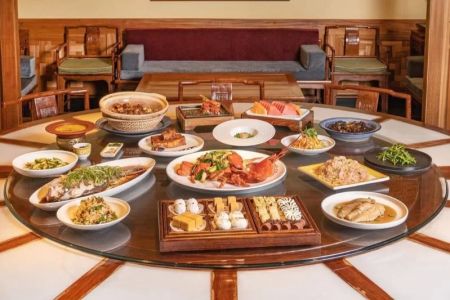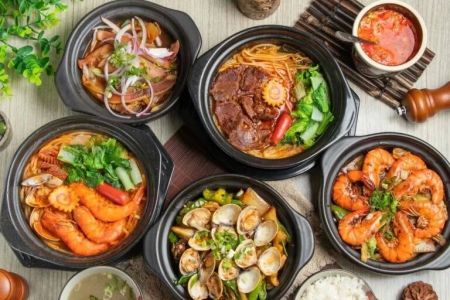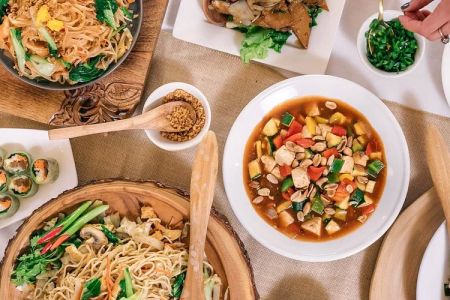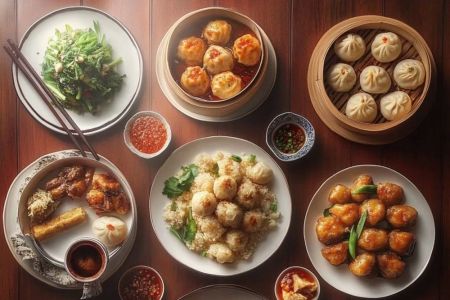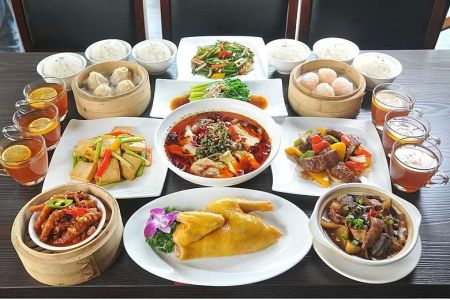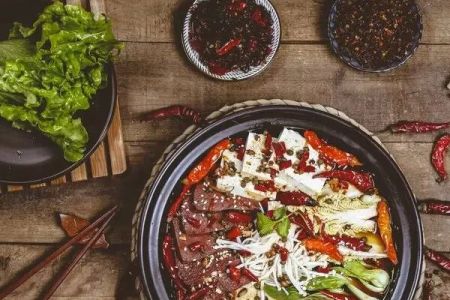Exploring the Rich and Flavorful World of Chinese Food: A Journey Through Tradition and Innovation
- What is Chinese Food?
- History and Culture of Chinese Cuisine
- Popular Chinese Dishes
- Regional Variations in Chinese Food
- Chinese Food in the US: A Global Phenomenon
- How to Make Chinese Food at Home
- Where to Buy Authentic Chinese Food Ingredients
What is Chinese Food?
Chinese food is a vast and diverse category that encompasses a wide variety of cooking styles, ingredients, and flavors. Originating from one of the world’s oldest civilizations, Chinese cuisine has evolved over thousands of years. With regional variations and influences from both historical and modern times, Chinese food is known for its balance of flavors—sweet, sour, salty, bitter, and umami—and its emphasis on harmony between ingredients.
Whether it's the crispy, savory flavors of Peking duck, the comforting taste of hot and sour soup, or the rich sweetness of dim sum, Chinese food offers something for everyone. From stir-fries to steamed buns, each dish has its own unique preparation and history. Let’s explore the story behind Chinese food and how it’s become a favorite worldwide.
History and Culture of Chinese Cuisine
The history of Chinese food is deeply intertwined with the country’s culture, geography, and philosophy. Chinese cuisine dates back over 5,000 years, with its early roots in the agricultural society that prized rice, grains, and vegetables. Over time, the various regions of China developed their own distinct flavors and cooking techniques, influenced by local ingredients and cultural beliefs.
The practice of balancing yin and yang in Chinese medicine also plays a key role in Chinese food preparation. Ingredients are carefully selected not only for taste but also for their ability to balance the body’s energy. The cultural significance of food in China is profound, with meals often serving as a way to bring people together in celebration, and food rituals play an important part in holidays and festivals.
Chinese food is more than just a meal—it is an expression of history, tradition, and philosophy, and understanding its roots can deepen your appreciation for the dishes you enjoy today.
Popular Chinese Dishes
Chinese cuisine is filled with an abundance of delicious dishes. From street food snacks to gourmet banquets, there’s a wide variety of options to choose from. Here are some of the most popular and beloved Chinese dishes:
- Peking Duck: A famous Beijing dish known for its crispy skin and tender meat, often served with thin pancakes, hoisin sauce, and cucumber.
- Sweet and Sour Pork: A vibrant dish made with crispy pork chunks coated in a tangy, sweet sauce made from vinegar, ketchup, and sugar.
- Dim Sum: Small bite-sized portions of food, typically served in steamer baskets, that include dumplings, buns, rolls, and more.
- Hot and Sour Soup: A deliciously tangy soup made with ingredients like mushrooms, tofu, and bamboo shoots, flavored with vinegar and white pepper.
- Kung Pao Chicken: A stir-fried dish made with chicken, peanuts, vegetables, and chili peppers, all sautéed in a savory-sweet sauce.
Each of these dishes represents a distinct aspect of Chinese cuisine, whether it's the savory, the sweet, or the balance between them. No matter where you go, Chinese food has something to satisfy every palate.
Regional Variations in Chinese Food
Chinese food is not one-size-fits-all; it varies greatly by region, with each part of China having its own unique flavors, ingredients, and techniques. The country’s vast geography and diverse climate have given rise to four major culinary traditions: Cantonese, Sichuan, Shandong, and Jiangsu cuisine, each offering a different experience. Here’s a closer look at some regional specialties:
- Cantonese Cuisine: Known for its delicate flavors, Cantonese food emphasizes fresh, high-quality ingredients, often served in a light broth or stir-fried. Dim sum is a key element of this style.
- Sichuan Cuisine: Famous for its bold flavors, particularly spicy and numbing dishes, thanks to the use of Sichuan peppercorns and chili peppers. Hot pots and mapo tofu are staples.
- Shandong Cuisine: Known for its emphasis on fresh seafood, soups, and braised dishes, Shandong cuisine is hearty and flavorful, often featuring vinegar as a key ingredient.
- Jiangsu Cuisine: This cuisine is characterized by its use of fresh, seasonal ingredients and refined techniques, creating dishes that are savory, light, and slightly sweet.
Chinese food’s regional diversity means there’s always something new to try. Exploring different regional dishes is a great way to fully appreciate the complexity of this cuisine.
Chinese Food in the US: A Global Phenomenon
Chinese food has become a beloved part of American culture. In fact, Chinese food in the U.S. is one of the most popular cuisines, with thousands of restaurants across the country serving everything from traditional dishes to Americanized versions of Chinese classics.
The rise of Chinese food in America can be traced back to the late 19th century when Chinese immigrants introduced their culinary traditions. Over time, dishes like General Tso’s Chicken, egg rolls, and chop suey became staples of American Chinese restaurants. Today, Chinese food in the U.S. continues to evolve, blending traditional flavors with local tastes.
Whether you're enjoying takeout or dining at a fancy Chinese restaurant, the influence of Chinese food on American cuisine is undeniable. It’s a fusion of cultures that has resulted in some of the most popular comfort foods in the world.
How to Make Chinese Food at Home
If you’ve ever wanted to make Chinese food at home, you’re in luck! With the right ingredients and a little bit of practice, you can recreate your favorite dishes in your own kitchen. Here’s how:
Start with basic staples like soy sauce, ginger, garlic, and rice. These ingredients form the foundation for many dishes. Invest in a good wok or non-stick pan for stir-frying, and don’t forget the bamboo steamer for perfect dim sum. The key to making great Chinese food at home is mastering the art of balance—whether it's balancing sweet and sour, or tender and crispy textures.
Consider trying a recipe for fried rice, Kung Pao chicken, or simple dumplings. Each dish has its own techniques and flavor combinations, and the process is part of the fun!
Where to Buy Authentic Chinese Food Ingredients
To make authentic Chinese food at home, sourcing quality ingredients is crucial. Many of the items used in Chinese cuisine, such as rice noodles, hoisin sauce, and Sichuan peppercorns, can be found at local Asian grocery stores. You can also shop online for specialty items that may not be available in your area.
If you’re looking for high-quality ingredients, websites like GoChinaRose offer a wide selection of Chinese food essentials, including spices, sauces, and even cookware like woks and bamboo steamers.
By sourcing authentic ingredients, you can bring the true flavors of Chinese food into your home, elevating your cooking experience and impressing your friends and family.


